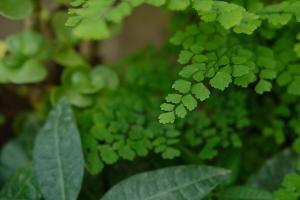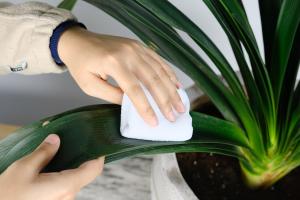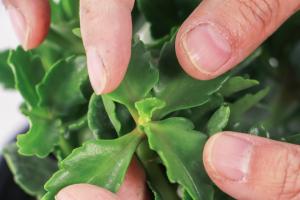What Happens If You Overwater a Newly Planted Fruit Tree?
When it comes to planting fruit trees, many of us tend to think that more watering is always better. However, excessive watering can actually be harmful to newly planted fruit trees. In this article, we'll take a closer look at what happens if you overwater a newly planted fruit tree and how to avoid common mistakes.
1. Root Rot
One of the most common problems associated with overwatering is root rot. Fruit tree roots need oxygen to survive and thrive, and excessive water can suffocate them. When roots are subjected to standing water for extended periods of time, they begin to rot and die. This can cause a range of problems, including stunted growth, wilting, and, in severe cases, death.
To avoid root rot, it is important to ensure that the soil around your newly planted fruit tree is well-draining. If your soil is heavy and tends to hold water, consider adding organic matter such as compost or leaf mulch to improve drainage.
2. Nutrient Deficiencies
Overwatering can also lead to nutrient deficiencies in newly planted fruit trees. When soil is constantly saturated, important nutrients like nitrogen, potassium, and phosphorus can be leached out of the soil, leaving your tree without the essential nutrients it needs to grow and thrive.
One way to prevent nutrient deficiencies is to use a slow-release fertilizer when planting your tree. This will help ensure that your tree has access to the nutrients it needs to establish a healthy root system.
3. Pests and Diseases
Overwatering can create a breeding ground for pests and diseases that can damage your newly planted fruit tree. Excessive moisture can attract harmful insects like fungus gnats and root aphids, as well as fungal diseases like powdery mildew and gray mold.
To prevent pests and diseases, it is important to avoid overwatering your tree and to ensure that there is good airflow around the tree. If you do notice signs of pests or diseases, consider using natural, non-toxic methods like neem oil or beneficial nematodes to control the problem.
4. Wilting and Yellowing Leaves
If you overwater your newly planted fruit tree, you may notice that its leaves start to wilt and turn yellow. This is because excess water causes the roots to become waterlogged and unable to absorb nutrients properly. When this happens, the leaves of your tree will start to yellow and wilt, and may eventually fall off.
To prevent wilting and yellowing leaves, it is important to water your fruit tree according to its specific needs. Different types of fruit trees require different amounts of water, so be sure to research your tree's requirements and adjust your watering accordingly.
Conclusion
Overwatering can have a number of negative effects on newly planted fruit trees, from root rot and nutrient deficiencies to pests and diseases. To prevent these problems, be sure to water your tree according to its specific needs and avoid excessive moisture. With proper care and attention, your newly planted fruit tree will thrive and produce a bountiful harvest for years to come.

 how many times do yo...
how many times do yo... how many planted tre...
how many planted tre... how many pine trees ...
how many pine trees ... how many pecan trees...
how many pecan trees... how many plants comp...
how many plants comp... how many plants can ...
how many plants can ... how many plants and ...
how many plants and ... how many pepper plan...
how many pepper plan...
































